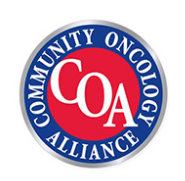
COA President Urges White House to Waive Prior Authorization Requirements for Cancer Treatment

In an open letter to the President of the United States, the Community Oncology Alliance brings attention to the critical needs of patients with cancer. Community Oncology Alliance requests all private health insurance companies immediately waive all “prior authorization” requirements for cancer treatments, which pose threat to cancer treatment, particularly in patients who are elderly and among the most vulnerable in the United States to contract COVID-19.
“We are writing this urgent letter on behalf of the Board of Directors of the COA, an organization representing community oncology practices that treat the majority (more than half) of all Americans with cancer,” Michael Diaz, MD, president, COA, wrote. “Unfortunately, cancer does not stop for any crisis, and patient treatment must continue during this national emergency.”
COVID-19 has led to an unprecedented crisis situation in the nation and for community oncology practices; they must keep clinical staff safe from the disease so they can continue treating patients, but the necessity of sending administrative staff to work remotely has complicated this even further.
Most health insurance companies require authorization of therapies selected by oncologists and their patients prior to the administration of treatment. However, “prior authorization” requirements have the potential to become a catastrophe as all non-clinical essential employees are working remotely. The situation is exacerbated by school closings and the global call for “social distancing”. The workforce of practices needed to handle “prior authorizations” is diminished by this situation, among many other administrative burdens that hinder the optimal and timely care of patients with cancer.
Several insurance companies are intending to or have already waived the “prior authorization” requirements at this time for COVID-19 tests and treatments, but these requirements still remain in place for cancer treatments.
Community oncologists are continuing to provide care and cancer treatment in safe and secure environments at this time, as well as their oncology nurses, pharmacists, and allied clinical personnel. Their clinical judgements are backed by national treatment guidelines, but the “prior authorizations” are an unnecessary burden among staff.
Diaz concluded by sharing his gratitude on behalf of COA for the expanded use of telehealth services and codes under Medicare. However, he requests all insurance companies do the same for all patients. Oncologists are able to remotely check in with patients and assess disease with telehealth.
Telehealth is particularly important in the elderly population who are at the greatest risk for contracting COVID-19 and are afraid to travel to their oncologists for treatment. However, if they do not receive treatment or necessary supportive care, these high-risk patients may end up in the emergency room or be hospitalized. At this time, there is already major concern of putting immunocompromised patients in the hospital environment, as well as concern for the nation’s need for hospital beds.
COA and community oncology practices aim to do all they can to help deal with the COVID-19 crisis. Oncology providers and practice administrators are networking to communicate best practices and answer questions. COA has also made an online resource available dedicated to COVID-19, which is updated daily with information on protocols and guidelines put in place by the federal government. They continue to work toward providing other educational resources for patients with cancer, among other supportive initiatives.
Reference











































